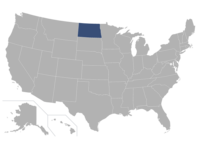Williston State defends tenure for 2-year faculty, compromise options suggested

The president of Williston State College on Tuesday defended tenure at North Dakota’s two-year colleges, saying it would be impossible to recruit without tenure track positions.
Bernell Hirning, president of Williston State, said that in the three years he has been at the college, when interviewing faculty candidates, those candidates all have asked about tenure track positions.
“If that goes away at Williston, we’re going to struggle to get even one applicant for a position, and it’s already difficult,” Hirning said. With Williston being in a remote area and the oil industry driving up the cost of living there, northwest North Dakota is a difficult place to recruit faculty, he said.
Hirning made his comments to the State Board of Higher Education Academic and Student Affairs Committee. That committee and the board have been debating tenure in recent weeks, especially at two-year colleges.
Higher ed board approves tenure for 2-year faculty in split vote
Board member Kevin Black has noted that North Dakota University System policy states that the intention of tenure is to protect academic freedom for faculty. He questioned whether faculty at two-year colleges dealing with technical courses really warrant having the protection that tenure provides.
Black said Tuesday that he has gotten numerous emails about his tenure questions. He said only one email really addressed his academic freedom concerns.
“As we move forward through this discussion, as we move through the fall into the legislative session, I would just encourage everybody to think through that argument,” Black said. “If, at the end of the day, it’s purely or majority of it is the employment benefit, then I think, let’s just be honest and have that conversation.”
Vice Chancellor for Academic Affairs Lisa Johnson pointed to written responses from the North Dakota University System’s two-year schools.
She noted that those schools do offer liberal arts classes that deal with controversial topics. Technical subject areas, such as agriculture, deal with touchy subjects such as climate change.
“There were numerous examples that were coming out of the community colleges that had some disciplines that probably needed to be protected,” Johnson said. “So maybe it’s up to the board to decide which ones need that protection. Is it some fields and not all?”
There was discussion of compromise on tenure. In North Dakota, college faculty are typically eligible to apply for tenure after six years as a full-time instructor.
Chancellor Mark Hagerott suggested offering three-year contracts to faculty as a way of providing some job security, instead of annual contracts. He has made the same suggestion for university presidents.
“There could be a compromise between lifetime employment and multi-year contracts,” Hagerott said.
A letter signed by academic vice presidents of four of North Dakota’s five two-year schools said tenure is not a lifetime appointment without expectations or obligations.
“There is nothing in policy or procedure … that allows tenured faculty to ‘coast,’ ‘retire in place’ or otherwise not fulfill the responsibilities of their position,” the vice presidents wrote.
Hagerott said in a May 1 presentation to a legislative committee that the University System should look at having fewer tenured faculty at the community colleges, “so that the presidents have more transformability in their faculty.”
The committee took no action Tuesday. The committee referred to a draft report coming from an ad hoc tenure committee that will be presented to the full board as another opportunity to continue the discussion.
Hirning said Williston State was proud that it has a high percentage of tenured faculty. He said that doesn’t mean it’s easy to obtain. Of three faculty that applied for tenure this year, only one was approved by the campus administration.
“We’ll continue to be very rigorous, very strict and very careful as to how we grant tenure moving forward,” he said.








